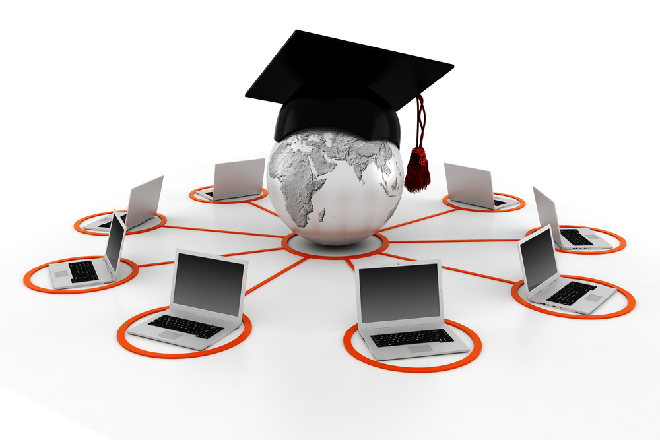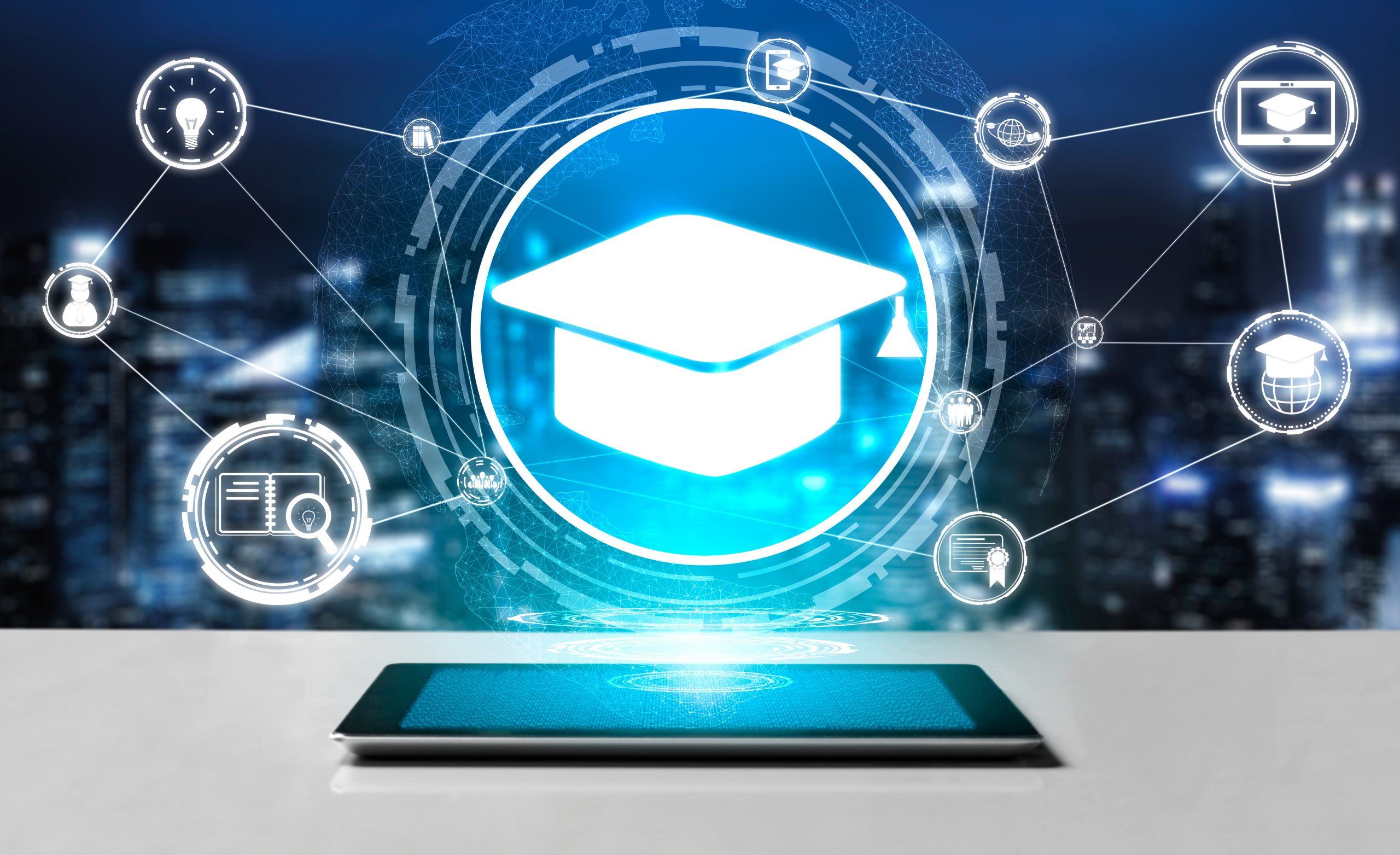Discover the very best Options for Grants to Assistance Your Financial Goals
Discover the very best Options for Grants to Assistance Your Financial Goals
Blog Article
Innovative Strategies for Enhancing Modern Technology Education and learning in Today's Understanding Settings
The advancing landscape of innovation education demands a reevaluation of standard pedagogical approaches to much better outfit trainees for the complexities of the modern-day globe. Innovative approaches, such as hands-on discovering experiences and collaborative project-based campaigns, play a critical function in connecting academic concepts with sensible applications. Furthermore, the assimilation of online sources and gamification can enhance involvement and motivation amongst learners. As we discover these approaches, it comes to be critical to think about how individualized learning can additionally enrich the academic experience and cultivate a deeper link in between students and modern technology. What might this mean for the future of education?
Hands-On Learning Experiences
Hands-on knowing experiences function as a cornerstone in innovation education, successfully linking the void in between academic expertise and sensible application. These experiential tasks make it possible for pupils to engage directly with tools, software program, and modern technology, fostering a deeper understanding of ideas that are commonly abstract in standard class setups.
By including hands-on discovering, teachers can facilitate a setting where students can experiment, innovate, and troubleshoot. This approach not just grows technological skills but also enhances problem-solving abilities, as pupils are urged to face real-world challenges. Hands-on experiences often lead to raised pupil motivation and engagement, as students see the instant relevance of their researches to useful situations.
Furthermore, such experiences can take various forms, consisting of lab experiments, simulations, and interactive tasks, all of which accommodate different learning designs. The integration of hands-on discovering in innovation education and learning likewise advertises retention of info, as pupils are more probable to keep in mind concepts they have actively collaborated with instead of passively observed. Generally, hands-on experiences are vital in preparing pupils for the intricacies of the contemporary technical landscape, equipping them with the skills and confidence required to succeed in their future occupations.
Joint Project-Based Knowing
Joint project-based learning equips pupils to interact in teams to attend to facility, real-world problems, promoting crucial skills for the contemporary labor force. This method urges energetic involvement, crucial reasoning, and creative thinking, as students work out functions, share duties, and collectively design options. By submersing themselves in tasks that mirror genuine challenges, learners create a deeper understanding of the topic while sharpening their ability to communicate and work together successfully.
In modern technology education and learning, joint project-based understanding can manifest through interdisciplinary projects that integrate aspects of style, design, and coding. Students could team up to create a mobile application or design a model that resolves a social issue, requiring them to integrate numerous technical principles and devices. This experiential understanding not just boosts technological efficiency however likewise cultivates problem-solving abilities and versatility.
In addition, such collective endeavors advertise a sense of community amongst students, cultivating interpersonal relationships and a common commitment to their task outcomes. As they browse the complexities of synergy, pupils discover to value diverse viewpoints and take advantage of each other's toughness, preparing them for future expert environments where collaboration is crucial. Ultimately, collective project-based learning is a foundation of effective innovation education and learning.
Combination of Online Resources

The combination of online sources helps with access to up-to-date information and market requirements, which is important in a swiftly progressing technological landscape. By leveraging systems such as MOOCs (Huge Open Online Courses) and specialized educational sites, instructors can supplement click for source conventional curricula with real-world applications, making it possible for trainees to engage with present trends and methods.

Eventually, the thoughtful combination of on-line sources in innovation education cultivates a much more dynamic, interesting, and appropriate knowing experience, equipping pupils with the abilities and understanding essential to thrive in a significantly electronic world.
Gamification Strategies in Education
The unification of gamification methods you could try here in education and learning represents an effective strategy to further engage students and enhance their knowing experiences. By incorporating game-like elements such as factors, badges, and leaderboards into the educational program, educators can promote inspiration and promote a sense of competitors among students. These techniques motivate engagement and determination, specifically in subjects that might or else appear discouraging.
Gamification can take various types, consisting of interactive quizzes, collective tasks, and immersive simulations, which permit trainees to use their knowledge in functional contexts. This interactive approach not only makes discovering enjoyable but likewise enhances key ideas via rep and prompt feedback. As trainees development, they can track their success, promoting a growth way of thinking and a sense of achievement.
Additionally, gamification promotes set apart direction by satisfying varied learning styles and speeds. Trainees are empowered to take possession of their discovering trip, permitting for a more personalized educational experience. In a progressively digital world, the use of gamification methods can connect the space between standard education and learning and contemporary technical improvements, eventually preparing trainees for future difficulties.
Personalized Discovering Approaches
Customized discovering techniques are progressively acknowledged as vital for dealing with the diverse needs and choices of pupils in today's academic landscape. These techniques empower learners by customizing academic experiences to private interests, more strengths, and finding out rates, consequently enhancing engagement and retention.
In modern technology education, personalized learning can take numerous types, including flexible knowing modern technologies, personalized curricula, and project-based knowing tailored to pupil interests. Platforms that use artificial knowledge can evaluate a pupil's performance information to recommend certain resources or tasks that align with their discovering style.
Moreover, personalized discovering encourages trainee agency, enabling students to set goals and pick pathways that reverberate with their aspirations (AI Tools). This autonomy promotes a much deeper link to the material, eventually leading to enhanced end results
Educators play a vital function in this procedure, using formative evaluations to check progress and change direction as necessary. Collaborative tools and electronic profiles can also help with individualized learning, allowing trainees to review their trips and display their success.
Conclusion
Finally, improving innovation education and learning in modern understanding environments necessitates the implementation of innovative techniques that prioritize hands-on knowing, collective jobs, and the integration of on the internet resources. Gamification methods serve to enhance interaction and motivation, while personalized knowing methods accommodate individual strengths and foster student firm. Jointly, these approaches develop a vibrant academic experience that prepares trainees for real-world challenges and grows crucial skills for future success in a rapidly progressing technical landscape.
As we discover these methodologies, it ends up being necessary to consider how tailored knowing can even more improve the educational experience and cultivate a much deeper connection between pupils and innovation. The integration of hands-on learning in innovation education also advertises retention of details, as trainees are much more most likely to keep in mind ideas they have actually proactively functioned with rather than passively observed.The incorporation of gamification strategies in education represents an effective approach to better engage pupils and boost their discovering experiences. Trainees are empowered to take ownership of their understanding journey, allowing for a much more personalized academic experience.In conclusion, improving technology education and learning in contemporary learning settings necessitates the application of innovative techniques that focus on hands-on learning, collective tasks, and the combination of on-line resources.
Report this page